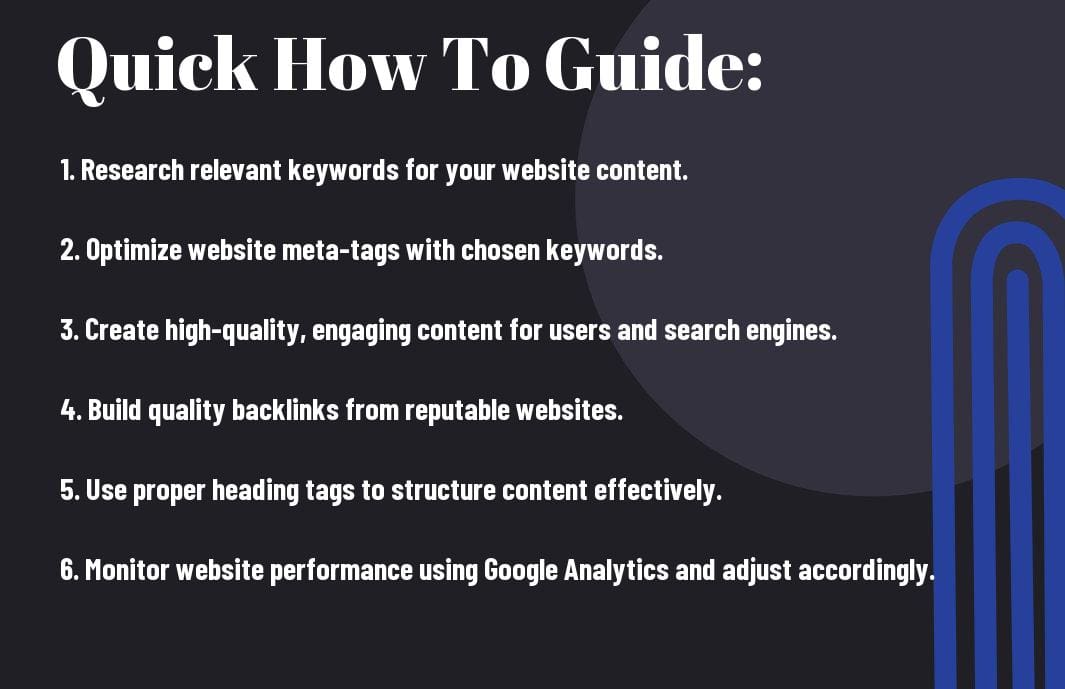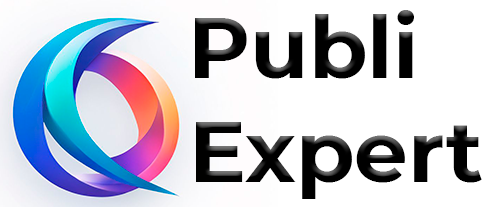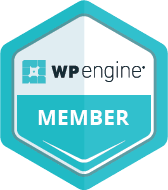Just initiateing on the journey of Search Engine Optimization (SEO) for your website? Look no further! In this comprehensive guide, we will investigate into proven methods that will elevate your website’s visibility and ranking on search engine results pages. Mastering SEO is important in today’s digital landscape, where competition is fierce, and organic traffic can make or break your online presence.
Key Takeaways:
- Quality Content: Creating high-quality, relevant, and engaging content is crucial for SEO success. This includes using targeted keywords, writing meta descriptions, and optimizing images.
- Backlink Building: Building a strong backlink profile is vital for improving search engine rankings. Focus on getting backlinks from reputable and authoritative websites in your industry.
- Regular Monitoring and Adjustments: SEO is an ongoing process that requires regular monitoring and adjustments. Keep track of your website’s performance, analyze data, and make necessary changes to improve your SEO strategy.

Getting Started with SEO: The Basics
There’s no denying the importance of search engine optimization (SEO) for businesses looking to succeed online. From improving website visibility to increasing organic traffic, SEO can significantly impact a company’s online presence. However, getting started with SEO can be daunting for beginners. In this chapter, we will break down the basics of SEO and provide a step-by-step guide to help you kickstart your SEO journey.
How-to Define Your SEO Goals
The first step in any successful SEO strategy is to define your goals. SEO goals should be specific, measurable, achievable, relevant, and time-bound (SMART). Whether your goal is to increase website traffic, boost search engine rankings, or drive conversions, clearly outlining your objectives will guide your SEO efforts and help you measure success.
Understanding Key SEO Factors and Terminology
Define the key factors and terminology that play a crucial role in SEO success. From keywords and backlinks to meta tags and alt text, familiarize yourself with the imperative elements of SEO.
- Keywords: The words and phrases that users type into search engines to find relevant content.
- Backlinks: Links from other websites that point to your site, signaling to search engines that your content is valuable.
- Meta Tags: HTML tags that provide information about a web page to search engines.
Perceiving how these factors work together can help you optimize your website effectively.
Keyword Research: The Cornerstone of SEO
How to Identify and Select the Right Keywords
Unlike the early days of SEO, where keyword stuffing was rampant, today’s search engines demand a more sophisticated approach to keyword research. The first step in any successful SEO strategy is identifying and selecting the right keywords for your website. This process requires a deep understanding of your target audience, their search behavior, and the relevance of certain keywords to your content.
Tips for Using Keywords Effectively in Your Content
The placement and frequency of keywords within your content can greatly impact its search engine visibility. It is crucial to strategically place your main keywords in the title, meta description, headings, and throughout the body of your content. By doing so, you signal to search engines what your content is about and increase the likelihood of ranking for those terms.
- Keyword Placement: Ensure your main keywords are placed strategically in your content to enhance its SEO value.
- Keyword Frequency: Avoid overusing keywords, as this can lead to keyword stuffing and harm your SEO efforts.
- Keyword Variations: Use variations of your main keywords to signal relevance without being repetitive.
- Keyword Intent: Understand the intent behind the keywords you choose to align your content with what users are searching for.
On the other hand, simply dumping keywords into your content without regard for quality or user experience can result in penalties from search engines. It is crucial to strike a balance between optimizing for search engines and creating valuable, engaging content for your audience. Perceiving this balance is key to a successful SEO strategy and long-term organic traffic growth.
On-Page SEO: Optimizing Your Website’s Content and Structure
Once again, when it comes to optimizing your website for search engines, on-page SEO plays a crucial role. For a comprehensive guide on Search Engine Optimization (SEO), check out the Search Engine Optimization (SEO) Starter Guide by Google.
How-to Optimize Title Tags and Meta Descriptions
Meta descriptions provide a brief summary of your webpage’s content, while title tags indicate the page’s title. It is vital to include relevant keywords in both the meta description and title tags to improve your website’s search visibility. Keep the meta description under 160 characters and the title tag under 70 characters for optimal display in search results.
Tips for Structuring URLs and Heading Tags
Your URL structure and heading tags should be clear, concise, and include keywords whenever possible. Use hyphens to separate words in URLs and create a logical hierarchy with heading tags (H1 to H6) to help search engines understand the content’s structure. This ensures that search engines can easily navigate and index your site. This enhances user experience and improves search rankings.
How-to Enhance User Experience (UX) and Site Speed
Howto optimize user experience and site speed is critical for both search engine rankings and visitor retention. Ensure your website is mobile-friendly, easy to navigate, and loads quickly. Compress images, minify CSS and JavaScript files, and utilize browser caching to improve site speed. Implementing a clean and intuitive design will keep visitors engaged and encourage them to explore further, ultimately leading to higher conversion rates.
Content Creation: Crafting SEO-Friendly Content
How-to Create High-Quality, Relevant Content
Creating high-quality, relevant content is important for effective search engine optimization. Not only does it help in engaging your audience, but it also plays a critical role in improving your website’s search engine rankings. When crafting content, it is imperative to focus on providing value to your readers. Start by understanding your target audience and their needs. Research popular topics in your industry and identify areas where you can offer unique insights or solutions. By creating original and informative content, you can establish your website as a trusted resource and attract more organic traffic.
Tips for Incorporating Keywords into Your Content Strategically
Crafting SEO-friendly content involves strategically incorporating keywords to improve your website’s visibility in search engine results. Not all keyword placements are equally effective. To efficiently integrate keywords into your content, consider placing them in the title, meta description, headers, and throughout the body of your text. Utilize long-tail keywords that are more specific to your niche and audience, as they often have less competition and can drive targeted traffic to your website.
- Keyword Research: Conduct thorough keyword research to identify relevant terms and phrases.
- Placement: Strategically place keywords in the title, headers, and body of your content.
- Usage: Use keywords naturally and avoid keyword stuffing to maintain a high-quality reading experience for your audience.
Knowing how to skillfully integrate keywords into your content can significantly impact your website’s search engine rankings and drive more organic traffic to your site. By following these tips, you can create content that is not only SEO-friendly but also engaging and valuable to your readers.
Off-Page SEO: Building Authority with Backlinks
Keep in mind that off-page SEO, particularly link building, plays a crucial role in establishing your website’s authority in the eyes of search engines. Backlinks are like votes of confidence from other websites, indicating to search engines that your content is trustworthy and valuable. In this chapter, we will examine into the strategies and tips for effectively leveraging backlinks to boost your SEO efforts.
How to Develop a Link Building Strategy
If you want to enhance your website’s authority and improve its search engine rankings, developing a comprehensive link building strategy is necessary. Start by identifying high-quality websites in your niche that could potentially link back to your content. Focus on creating valuable, shareable content that others will naturally want to link to, such as informative blog posts, infographics, or how-to guides. Additionally, consider reaching out to website owners and influencers to establish mutually beneficial relationships that can result in valuable backlinks.
Tips on How to Earn High-Quality Backlinks
An effective way to earn high-quality backlinks is to create exceptional, engaging content that naturally attracts links from reputable websites in your industry. Leverage guest blogging opportunities to reach new audiences and earn relevant backlinks. Participating in industry events or webinars can also help you establish connections with influential individuals who may link back to your website. Assume that earning backlinks is a continual process that requires dedication and consistency.
Understanding the Role of Social Signals in SEO
Social signals play a pivotal role in SEO by influencing how search engines perceive the credibility and relevance of your content. Social media platforms like Facebook, Twitter, and LinkedIn can amplify the visibility of your website and attract more traffic. By actively engaging with your audience on social media, sharing valuable content, and encouraging social sharing, you can strengthen your website’s authority and improve its search engine rankings.
RoleEngaging with your audience on social media platforms can have a significant impact on your SEO performance. The more your content is shared, liked, and commented on, the more signals you send to search engines that your website is a valuable resource worth ranking higher in search results.
Technical SEO: Ensuring Search Engines Can Crawl and Index Your Site
Now, when it comes to Technical SEO, one of the key aspects is ensuring that search engines can easily crawl and index your website. This involves optimizing your site’s structure, navigation, and design to make it more search engine-friendly.
How-to Improve Site Structure and Navigation
To improve your site structure and navigation for better SEO, it is crucial to create a logical hierarchy by organizing your content into categories and subcategories. This helps search engines understand the relationship between different pages on your site, making it easier for them to crawl and index your content. Additionally, having a clear navigation menu with internal links can help users and search engines navigate through your site efficiently.
Tips for Implementing Responsive Design for Mobile Optimization
- Use responsive design to ensure your site adapts to different screen sizes and devices.
- Optimize images and videos for fast loading times on mobile devices.
Structure your website in a mobile-friendly way by ensuring that your design is responsive and adapts to various screen sizes. This not only improves the user experience but also helps with SEO as Google prioritizes mobile-friendly websites in its search results. The goal is to provide a seamless experience for users, regardless of the device they are using.
Understanding How-to Leverage the Power of Schema Markup
Site owners can leverage the power of Schema markup to provide search engines with more context about their content. By adding Schema markup to your website, you can enhance the way your content appears in search results, making it more appealing to users. This can lead to higher click-through rates and improved search visibility.
Ensuring that your website is structured, navigable, and designed with SEO in mind is necessary for search engine optimization success. By implementing these technical SEO best practices, you can help search engines crawl and index your site effectively, ultimately improving your rankings and visibility online.
Tracking Your SEO Progress: Tools and Metrics
Despite the ever-changing landscape of search engine algorithms, tracking your SEO progress is crucial to ensuring your efforts are yielding results. Utilizing the right tools and metrics can provide valuable insights into your website’s performance and help you make informed decisions to improve your search engine ranking.
How-to Use Analytics Tools to Monitor SEO Performance
One of the most powerful tools for tracking SEO progress is Google Analytics. This free tool provides a wealth of information about your website traffic, including the number of visitors, their geographic location, the pages they visited, and how they found your site. By setting up goals and tracking conversions, you can measure the effectiveness of your SEO efforts in driving valuable actions on your website.
Tips for Interpreting SEO Reports and Making Data-Driven Decisions
While interpreting SEO reports may seem daunting at first, it is crucial for making data-driven decisions to improve your website’s performance. One key tip is to focus on key performance indicators (KPIs) such as organic traffic, keyword rankings, and conversion rates. By identifying trends and patterns in your data, you can pinpoint areas that need improvement and adjust your SEO strategies accordingly.
- Identify top-performing keywords and optimize content around them
- Monitor backlink quality and quantity to enhance your site’s authority
- Track user engagement metrics like bounce rate and time on page
After analyzing your SEO reports, you can make informed decisions on where to focus your efforts to maximize your website’s visibility and drive organic traffic. Tracking progress over time and iteratively optimizing your SEO strategy will help you achieve long-term success in search engine rankings.
Be mindful of, SEO is an ongoing process that requires constant monitoring and adjustment to stay ahead of the competition.
Reports: Highlight the most important, dangerous, positive details in the text.
Local SEO: Capturing Local Search Territory
How-to Optimize for Local Search Results
All businesses, big or small, can benefit from optimizing their online presence for local search results. Local SEO strategies help businesses target their local audience and increase visibility in searches.
Search engines like Google prioritize local businesses in search results based on the user’s location. To optimize for local searches, ensure your business name, address, and phone number (NAP) are consistent across all online platforms. Incorporate relevant keywords pertaining to your location in your website content and meta descriptions to improve local search rankings.
Tips for Managing Online Reviews and Local Citations
Online reviews and local citations play a crucial role in local SEO. Encourage customers to leave positive reviews on platforms like Google My Business, Yelp, and Facebook to boost your business’s credibility and rankings.
Local citations, which are online mentions of your business name, address, and phone number, help establish trust with search engines. Ensure your business information is accurate and consistent across all directories and listings. Respond to both positive and negative reviews promptly to show that you value customer feedback.
- Encourage customers to leave positive reviews on various platforms.
- Keep your business information accurate and consistent across all directories.
- Show responsiveness to customer feedback by responding promptly to reviews.
- Thou, it may take time to build a strong online reputation, stay consistent and patient in your efforts.
Capturing Local Search Territory requires a strategic approach to online visibility. By implementing the right local SEO techniques and effectively managing online reviews and local citations, businesses can improve their local search rankings and attract more customers in their area.
Advanced SEO Strategies: Taking Your SEO to the Next Level
Many modern SEO strategies involve more advanced techniques to stay ahead of the competition and improve search engine rankings. To take your SEO efforts to the next level, consider the following:
-
How-to Implement Voice Search Optimization
For Optimize content for long-tail keywords and conversational phrases For Focus on creating FAQ pages to address common voice search queries
Many users are now utilizing voice search to find information quickly and easily. To optimize for voice search, focus on using long-tail keywords and natural language phrases in your content. Additionally, creating FAQ pages can be beneficial as they directly address common questions that users ask through voice search.
Tips for Capitalizing on Featured Snippets and Other SERP Features
-
An
For Optimize content for featured snippet opportunities with concise answers For Utilize schema markup to enhance the visibility of your content in SERP features
Next, to make the most of featured snippets and other SERP features, ensure your content is optimized for these opportunities by providing clear and concise answers to commonly searched questions. Schema markup can also help enhance the visibility of your content in these features, increasing the chances of attracting more traffic to your site. Perceiving these opportunities and optimizing accordingly can give you a competitive edge in search engine results.
Next, continue implementing these advanced SEO strategies to stay ahead of the competition and improve your website’s visibility in search engine results pages. By focusing on voice search optimization, featured snippets, and other SERP features, you can maximize your SEO efforts and attract more traffic to your site.
Adapting to Algorithm Updates: Staying Ahead in SEO
How-to Stay Informed on Algorithm Changes
For any SEO professional, staying informed on algorithm changes is crucial for maintaining a successful strategy. Search engines frequently update their algorithms, impacting the way websites are ranked and indexed. To stay ahead, it is imperative to follow reputable SEO blogs, attend industry conferences, and participate in webinars that provide insights into upcoming changes.
Tips for Quickly Adapting Your SEO Strategy to New Updates
Any SEO specialist knows the importance of quickly adapting to algorithm updates to maintain or improve search engine rankings. To do so efficiently, regularly monitor your website’s performance and organic traffic after each major algorithm update. Update your optimization strategies based on the changes observed, such as tweaking keywords, improving content quality, and enhancing user experience.
- Monitor website performance
- Update keyword strategies
- Enhance user experience
Staying ahead of algorithm updates not only improves your SEO performance but also helps establish your website as a reliable source of information in the eyes of search engines. Perceiving the importance of agility in adapting to changes will set you apart from competitors and solidify your online presence.
Final Words
With this in mind, utilizing the proven methods discussed in this how-to guide will set you on the path to search engine optimization success. By focusing on keyword research, optimizing on-page elements, creating quality content, and building backlinks, you can improve your website’s visibility and drive more organic traffic. Be mindful of, SEO is an ongoing process that requires dedication and consistency, so be patient and continue to monitor your progress to achieve long-term success.
FAQ
Q: What is Search Engine Optimization (SEO)?
A: Search Engine Optimization (SEO) is the practice of optimizing your website to increase its visibility on search engines like Google, Bing, and Yahoo. By improving your site’s SEO, you can attract more organic (non-paid) traffic and improve your search engine rankings.
Q: Why is SEO important for a website?
A: SEO is important for a website because it helps your site rank higher in search engine results, leading to increased visibility and traffic. Improved SEO can also enhance user experience, credibility, and trustworthiness.
Q: What are some proven methods for SEO success?
A: Some proven methods for SEO success include keyword research, on-page optimization, creating high-quality content, building backlinks, and monitoring your site’s performance using analytics tools.
Q: How can keyword research benefit SEO efforts?
A: Keyword research helps identify the terms and phrases users are searching for related to your business. By targeting these keywords in your content and optimization efforts, you can improve your site’s relevance and visibility in search results.
Q: What is on-page optimization, and why is it important for SEO?
A: On-page optimization involves optimizing elements on your website, such as meta tags, headings, and content, to improve your site’s visibility and relevance to search engines. It is crucial for SEO success as it helps search engines understand the content and purpose of your site.
Q: How does creating high-quality content impact SEO?
A: Creating high-quality, relevant, and engaging content not only attracts users to your site but also increases the likelihood of other sites linking back to your content. This can improve your site’s authority, credibility, and search engine rankings.
Q: Why is link building important for SEO?
A: Link building is important for SEO because search engines view backlinks as votes of confidence from other websites. By acquiring quality backlinks from reputable sites, you can improve your site’s authority and relevance, leading to higher search engine rankings.




